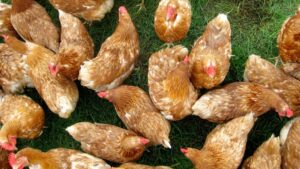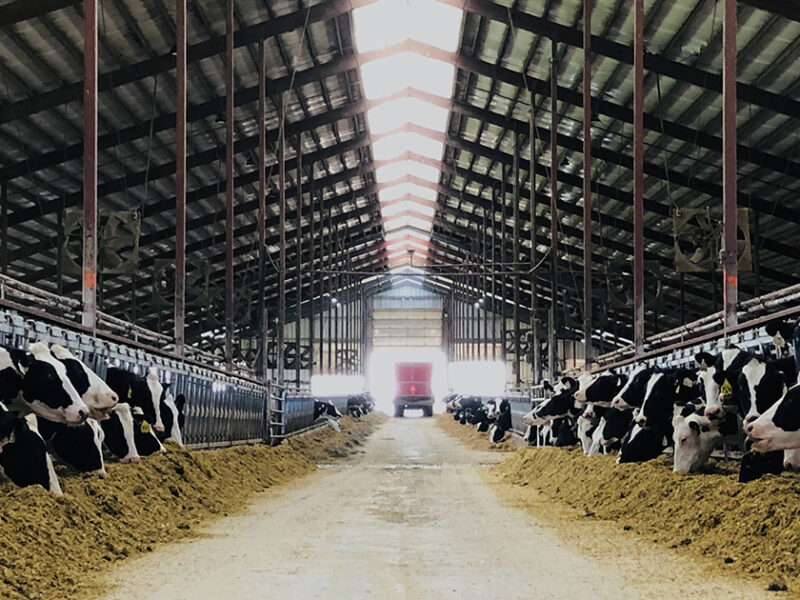Introduction
Optimizing animal nutrition is a critical factor in achieving maximum productivity in livestock farming. Proper nutrition not only enhances growth rates and product quality but also contributes to overall animal health and welfare. This note delves into various strategies and considerations for optimizing the nutritional intake of farm animals to maximize productivity and profitability.

Understanding Animal Nutritional Needs
- Species-Specific Requirements: Different species of livestock have unique nutritional needs. Understanding these requirements is essential for formulating appropriate diets. For example, the protein needs of dairy cows differ significantly from those of beef cattle or poultry.
- Life Stage Considerations: Nutritional needs vary at different life stages of animals, including growth, reproduction, lactation, and maintenance. Tailoring diets to these specific stages can enhance productivity. For instance, pregnant and lactating animals often require higher energy and protein intake.
- Balanced Diets: A balanced diet for farm animals includes the right proportions of macronutrients (proteins, carbohydrates, fats), micronutrients (vitamins and minerals), and water. Ensuring a well-rounded diet is crucial for optimal growth, immune function, and reproduction.
Key Strategies for Optimizing Nutrition
- High-Quality Feed Ingredients: Using high-quality feed ingredients ensures that animals receive the essential nutrients they need. Ingredients should be selected based on their nutritional value, digestibility, and palatability. Common high-quality feed ingredients include grains, oilseeds, forage, and animal by-products.
- Supplementation: In many cases, the natural diet may lack certain nutrients. Supplementation with vitamins, minerals, amino acids, and enzymes can help meet the nutritional gaps. For example, adding calcium and phosphorus supplements is crucial for bone development in young animals.
- Precision Feeding: Precision feeding involves providing the right amount of nutrients at the right time to meet the specific needs of each animal. This can be achieved through the use of automated feeding systems and nutritional software that monitor and adjust feed rations based on individual animal requirements.
- Feed Additives: Incorporating feed additives can enhance feed efficiency and animal performance. Common additives include probiotics, prebiotics, enzymes, and growth promoters. These additives can improve gut health, nutrient absorption, and overall growth rates.
- Forage Management: For grazing animals, managing forage quality and availability is crucial. Rotational grazing, proper harvesting techniques, and silage production can ensure a consistent supply of high-quality forage, which is a key component of their diet.
Innovative Approaches to Animal Nutrition
- Nutrigenomics: Nutrigenomics is the study of how nutrition affects gene expression in animals. By understanding the genetic basis of nutritional responses, farmers can develop customized diets that enhance specific traits, such as growth rate, milk production, or disease resistance.
- Fermented Feeds: Fermentation of feeds can enhance their nutritional value and digestibility. Fermented feeds, such as silage and fermented grains, can improve gut health and nutrient absorption, leading to better growth and productivity.
- Alternative Protein Sources: Exploring alternative protein sources, such as insect meal, algae, and plant-based proteins, can provide sustainable and cost-effective nutrition for livestock. These sources can reduce reliance on traditional protein feeds like soybean meal and fish meal.
- Probiotics and Prebiotics: Probiotics and prebiotics can enhance gut health and nutrient utilization in animals. Probiotics introduce beneficial bacteria into the gut, while prebiotics promote the growth of these bacteria. This can lead to improved digestion and overall health.
Monitoring and Evaluation
- Regular Health Assessments: Regular health assessments and monitoring of growth rates, reproductive performance, and milk or meat yield are essential for evaluating the effectiveness of nutritional strategies. Adjustments to the diet should be made based on these assessments.
- Nutritional Analysis: Conducting regular nutritional analysis of feed ingredients and complete rations ensures that the diet meets the intended nutritional specifications. This can involve laboratory testing for nutrient content and digestibility.
- Body Condition Scoring: Body condition scoring (BCS) is a practical tool for assessing the nutritional status of animals. BCS helps in making informed decisions about dietary adjustments to maintain optimal body condition and productivity.
Economic Considerations
- Cost-Benefit Analysis: Implementing nutritional strategies should be economically viable. Farmers should conduct cost-benefit analyses to determine the return on investment for various feed ingredients, supplements, and additives.
- Feed Efficiency: Improving feed efficiency – the ratio of feed intake to product output – is a key goal. Efficient feed conversion reduces feed costs and increases profitability. Strategies such as precision feeding and use of feed additives can enhance feed efficiency.
- Sustainability: Sustainable nutrition practices not only benefit animal health and productivity but also contribute to environmental sustainability. Utilizing locally available feed resources, reducing feed waste, and minimizing the environmental impact of feed production are important considerations.
Conclusion
Optimizing animal nutrition is a multifaceted approach that requires a deep understanding of species-specific needs, high-quality feed ingredients, innovative feeding strategies, and regular monitoring and evaluation. By focusing on balanced diets, precision feeding, and incorporating modern nutritional science, farmers can enhance the health, productivity, and profitability of their livestock operations. Sustainable and economically viable nutritional practices will ensure the long-term success and resilience of the livestock farming industry.










